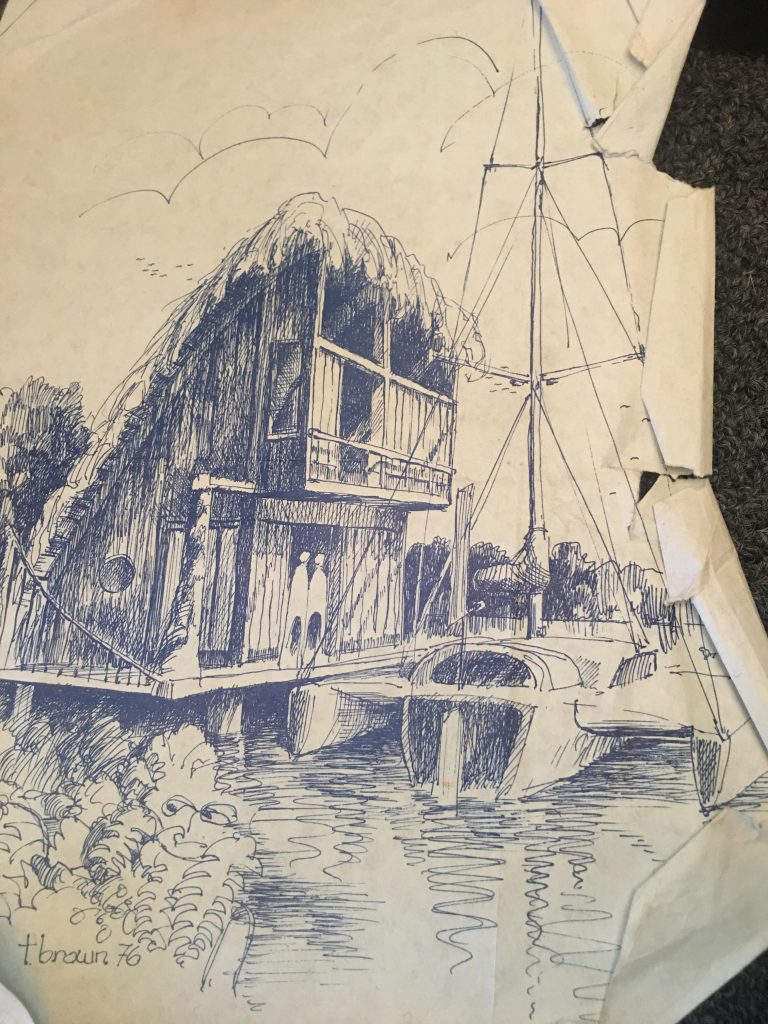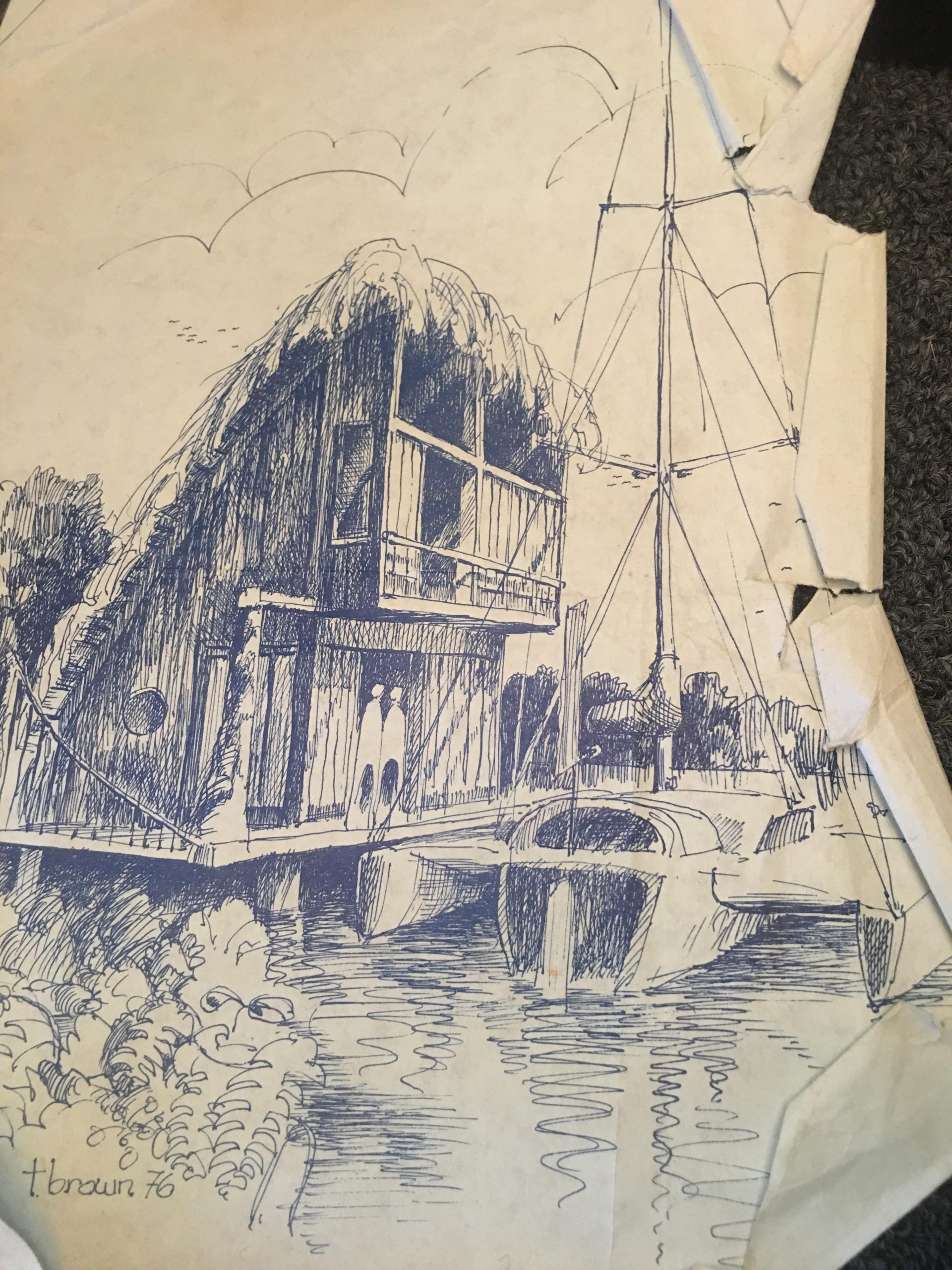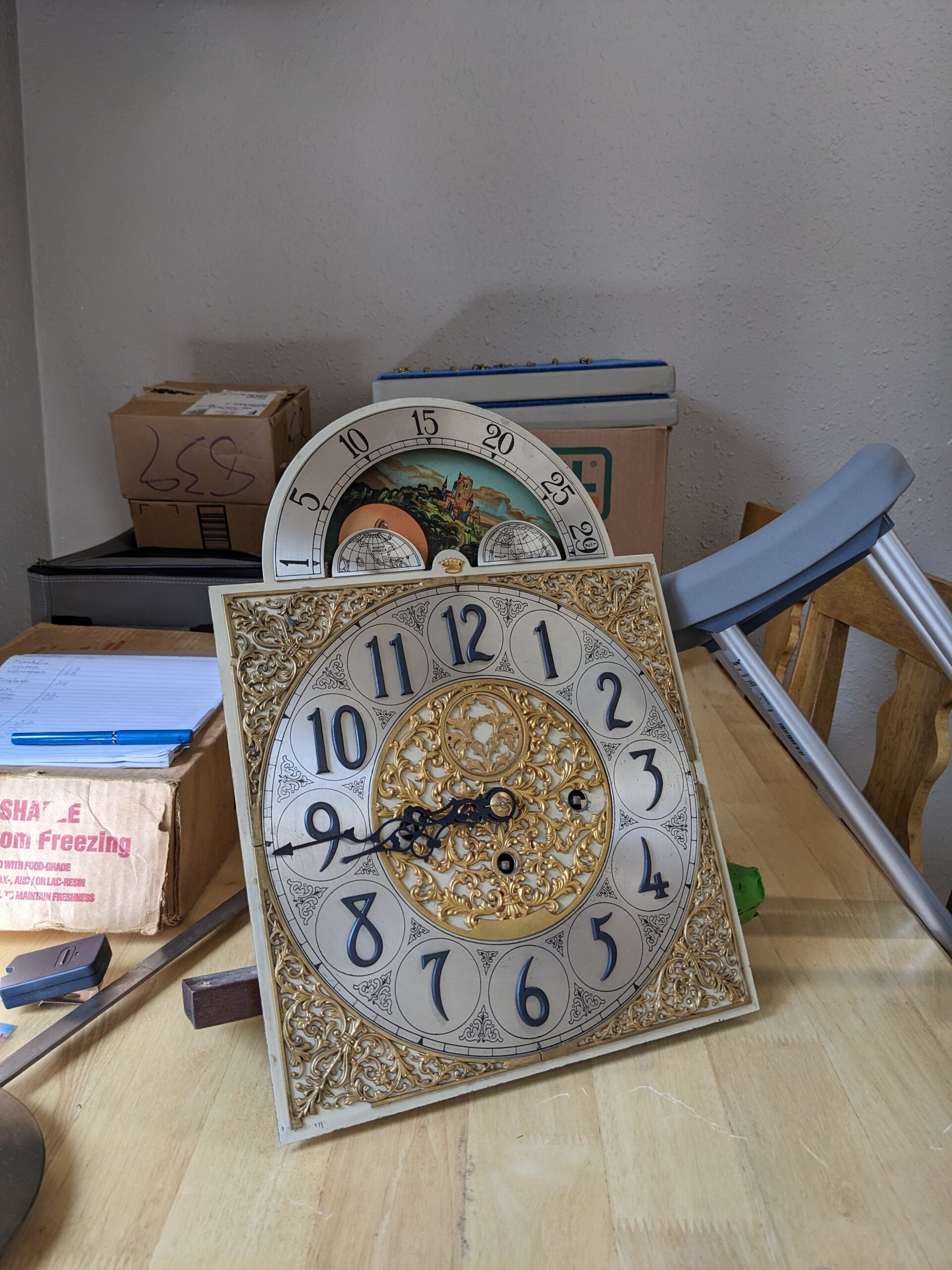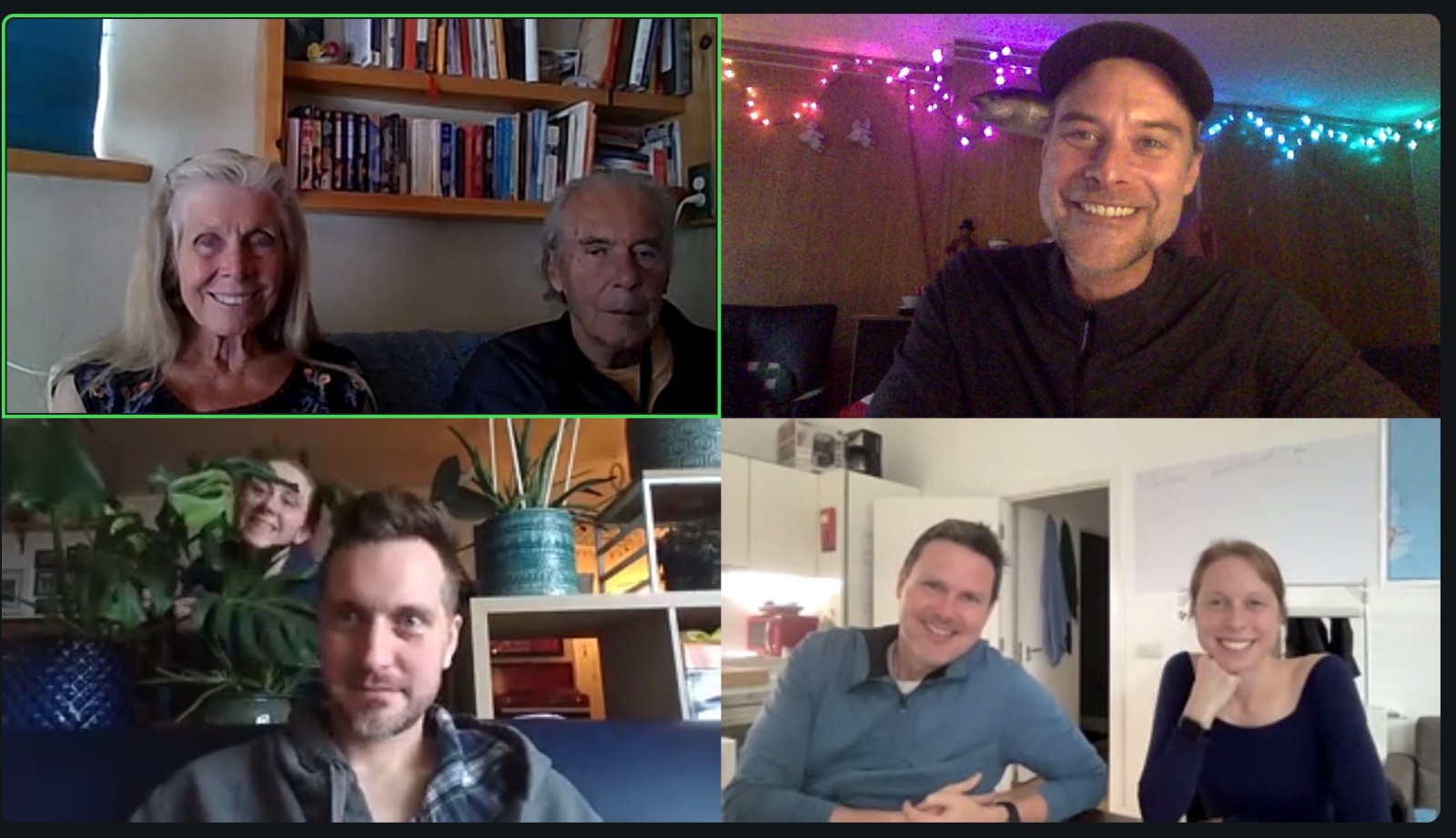
Teaching by demonstration was by far the most effective way. During Andy’s most disabled years, people looked to us to show them what they didn’t know about how to be with Andy.
Andy and I were not always able to teach people as effortlessly as Bill seemed to be able to do.
In our lives before Parkinson’s we made some very unconventional choices. We chose to find work that would not cause harm to others or to the earth, we had two home births and homeschooled our kids until college. Our dream home was a house built on the back of a large truck that was parked on remote land in a mountain forest. For twenty two years we lived happily without running water or indoor plumbing and we spent a large portion of our earnings on organic and natural food.
Neither of us grew up in families that made many unconventional choices and so we had a lot of explaining to do.
We learned ways to teach people about living with Parkinson’s from our long history sharing with our loved ones and friends our reasons for choices that made no sense to them. Rarely did they agree with our choices but they almost always arrived at an understanding of our point of view.
These understandings included such subjects as living without luxuries, birthing babies at home, seeking out alternative approaches when we got sick, nursing babies until they were toddlers and on and on. Just as our friend Bill was a teacher to the world about being an amputee, Andy and I became teachers about Parkinson’s.
Teaching by demonstration was by far the most effective way. During Andy’s most disabled years, people looked to us to show them what they didn’t know about how to be with Andy.
One morning, we were visiting my parents in their home near Chicago. After a few days of them witnessing me spoon feeding Andy while he’d sit on his shaking hands during our meal times together, I was called away to the phone.
“Mom, would you feed Andy for me?” I asked her. It was breakfast time and for a moment she looked aghast. Andy piped up and said, “By the time she gets back my cereal will be soggy.” When I returned to the kitchen, Mom and Andy were laughing together as he updated her on the latest news about a baseball player for the Chicago Cubs, Mom’s favorite team.
As we lived our lives and Parkinson’s symptoms made him more and more disabled, we became like a living exhibit for the world. Instead of staying home, we demonstrated how to help a person with Parkinson’s get up out of a chair, walk across a room, eat food, be comfortable, travel in an airplane, ride in a car, read a book and, in short, have a life.
What have you learned from watching a person cope with a disability?






Be the first to reply